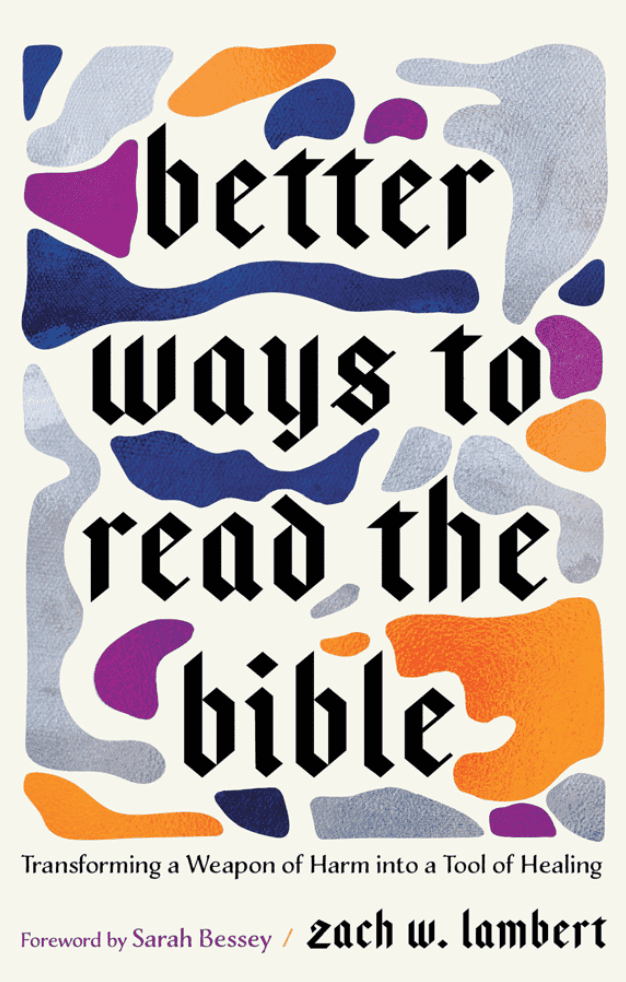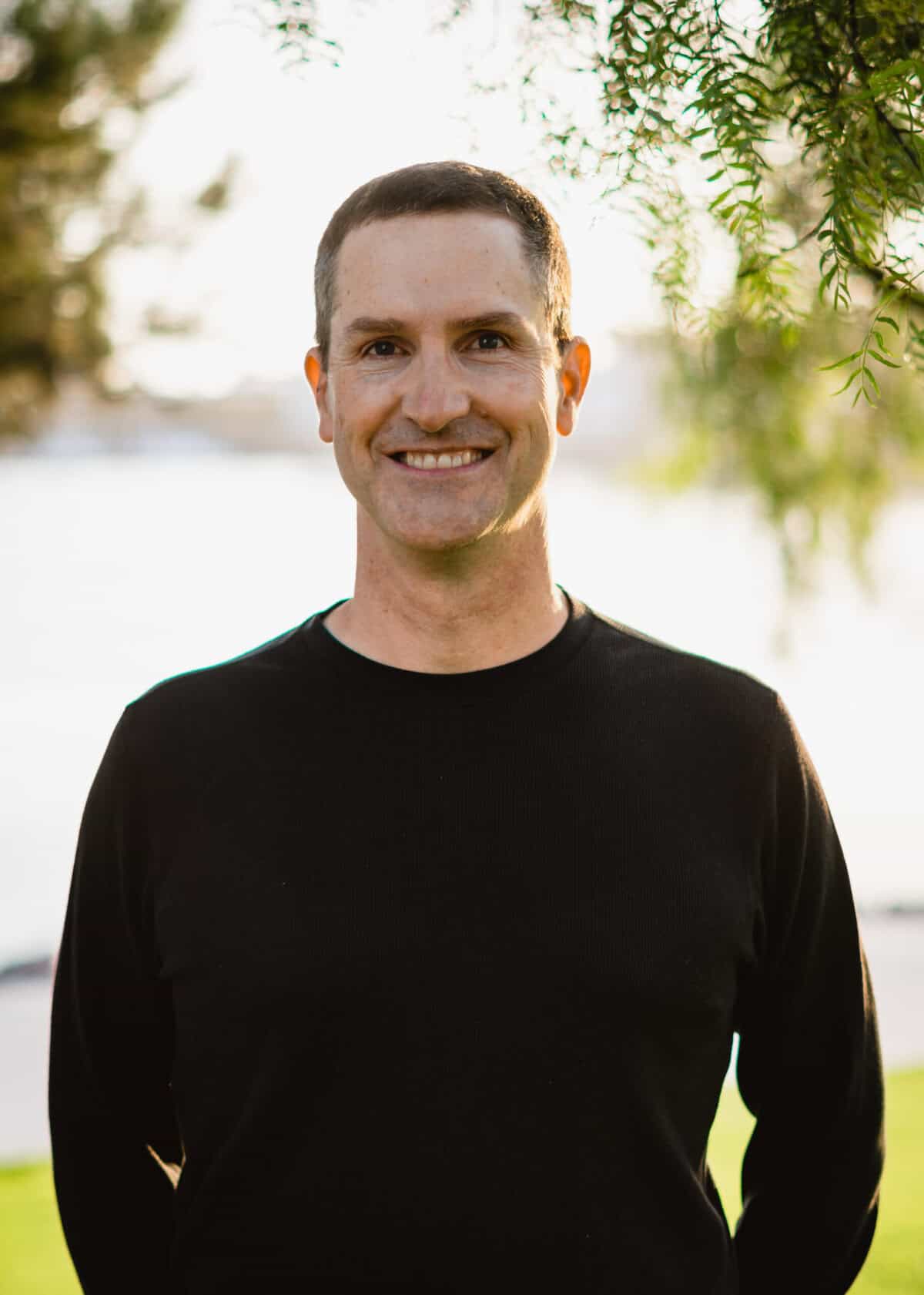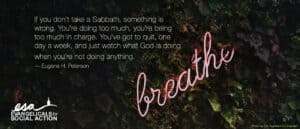A compelling and compassionate invitation to read the Bible with honesty, integrity, and the healing lens of Jesus.
 Better Ways to Read the Bible (Baker Book House, 2025) is a dangerous book. Do not read this book if you want to continue pretending that when you read the Bible, you just read it as it is. Do not read this book if you can’t bear the thought that your pastor brings his or her own agenda to the Bible passages taught on Sunday mornings.
Better Ways to Read the Bible (Baker Book House, 2025) is a dangerous book. Do not read this book if you want to continue pretending that when you read the Bible, you just read it as it is. Do not read this book if you can’t bear the thought that your pastor brings his or her own agenda to the Bible passages taught on Sunday mornings.
This book will leave you disarmed and perhaps disoriented if you thought you could just pick up the Bible without acknowledging the way your own life influences how you read it.
Thanks to Zach Lambert, those days are now gone.
Lambert grew up Southern Baptist, graduated from Dallas Theological Seminary, and now serves as pastor of a church in Texas. He has seen up close the ways Christian leaders have used the Bible to extract money from people, justify hate, and cover up abuse. He calls this “weaponizing scripture,” which he defines as using the Bible to harm instead of to heal. We begin to weaponize the Bible when we refuse to acknowledge that each of us comes to it with a certain perspective. In Lambert’s own words:
Everyone who reads and interprets the Bible does so with a set of assumptions about what the Bible is and how it’s supposed to work. This set of assumptions functions like a filter or a lens through which the reader attempts to make meaning. Although everyone reads the Bible through a lens (or set of lenses)—there is no neutral or unfiltered way to read it—many people are unaware that they’re doing so and have never stopped to take stock of the assumptions they bring to the text and how those assumptions impact interpretations.
– Zach Lambert, Better Ways to Read the Bible
Lambert’s writing is clean and clear. His stories are, unfortunately, so relatable—because so many of us have suffered like Lambert’s friends and congregants as a result of the harmful ways the Bible has been used against us. But perhaps the most crucial work Lambert does is surface the assumptions we bring to the text—often without even realizing it. It’s like having a professional tour guide lead you through a city you’ve visited countless times—all of a sudden, you see things you’d never noticed, hidden in plain sight.
Lambert identifies four main lenses that often distort how we read Scripture—and ultimately cause harm. I’ve preached the Bible for decades and have never seen such a straightforward, incisive, and helpful summary. If you, like me, come from an evangelical background, it’s worth the price of the book for these chapters alone. You may flinch from the sting of seeing your previously invisible lenses named so plainly:
- The literalism lens: “The Bible says it, I believe it, that settles it.”
- The apocalypse lens: “It’s all gonna burn anyway.”
- The moralism lens: “Well, that’s not biblical.”
- The hierarchy lens: “Submit to authority as you submit to God.”
You, like me, may find yourself cringing through these chapters. But the good news is that although we may have been taught these damaging approaches, we’re not forced to keep reading the Bible through them. Lambert reminds us that while no one reads the Bible with completely clear lenses, we do have a choice in which lenses we wear. And some are far better than others.
As if that weren’t gift enough, Lambert then offers four better lenses. He dives into passage after passage and issue after issue, inviting us to read Scripture the way Jesus did—with a posture that promotes healing. These four “better” lenses carry the capacity to help us navigate life in ways that reflect the fullness of God’s kingdom:
- The Jesus lens: “The Scriptures point to me.”
- The context lens: “The one who seeks will find.”
- The flourishing lens: “I have come that they may have life abundantly.”
- The fruitfulness lens: “By their fruit you will recognize them.”
Better Ways to Read the Bible reads like a healing balm for those who have exited a rigid and religious faith but do not want to give up on the Bible. Lambert offers tools to help us read Scripture—even the most difficult passages about hell, homosexuality, and women’s subjugation—with both integrity and hope.
This book also serves as a generous introduction for anyone just beginning the journey of examining their beliefs about the Bible. Maybe your doubts or questions have started to shake your once-solid faith, and you need someone to show you a different way to engage with the book you’ve revered your whole life. Lambert is that guide, and this book is a refreshing—and disarming—way forward.
 Bill White is one of the co-pastors at City Church of Long Beach and the executive director of Small Church Big Table, which helps Christian leaders navigate tricky conversations around LGBTQ questions.
Bill White is one of the co-pastors at City Church of Long Beach and the executive director of Small Church Big Table, which helps Christian leaders navigate tricky conversations around LGBTQ questions.



One Response
I really liked this book review about better ways to read the Bible. It struck a great balance between intellectual insight and spiritual encouragement. The reminder to approach Scripture with curiosity and humility was particularly meaningful something many readers can benefit from.